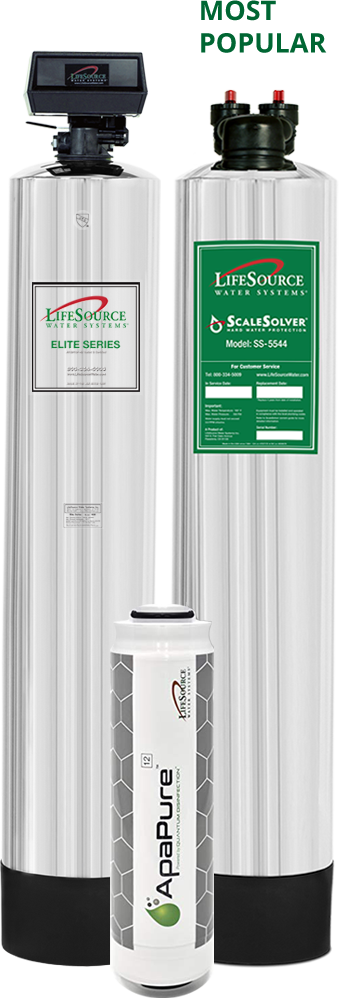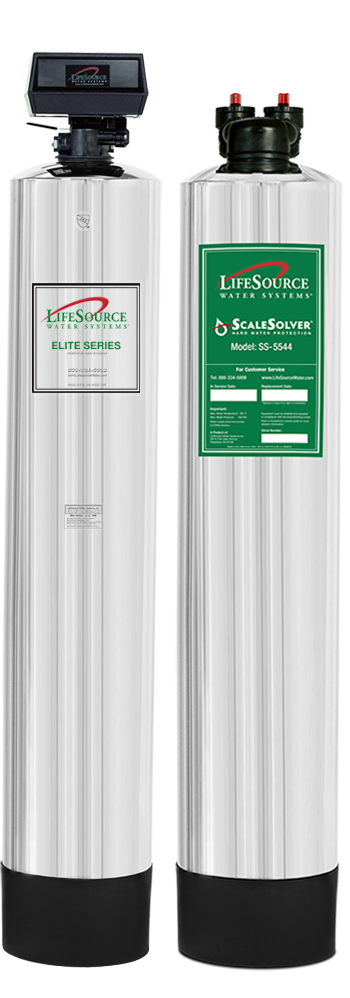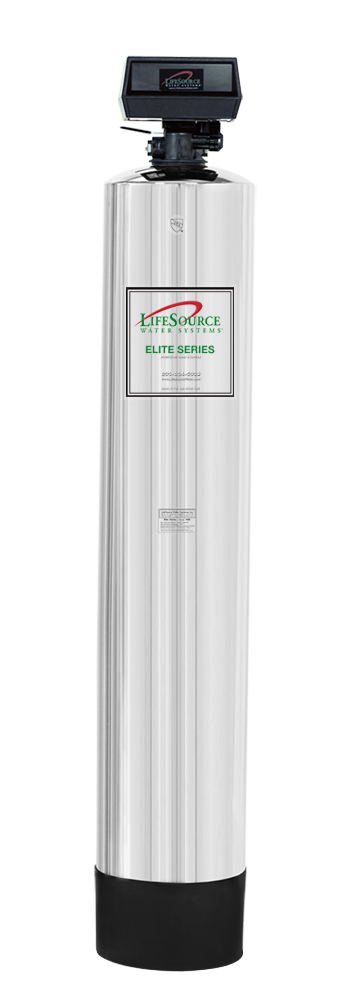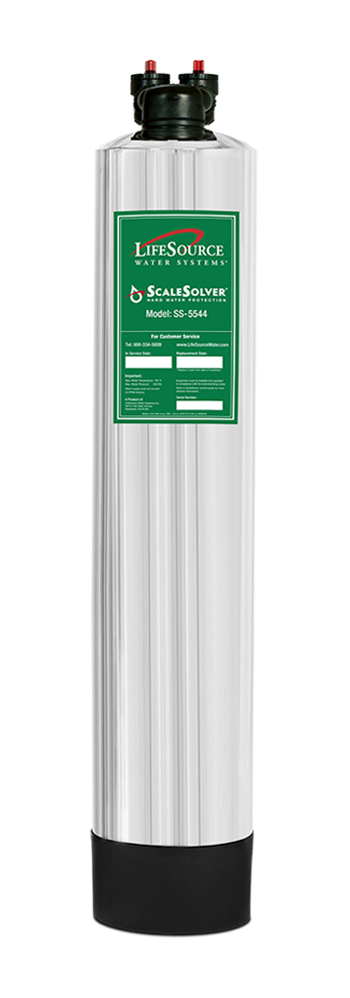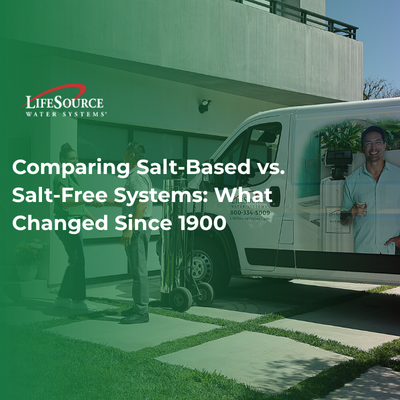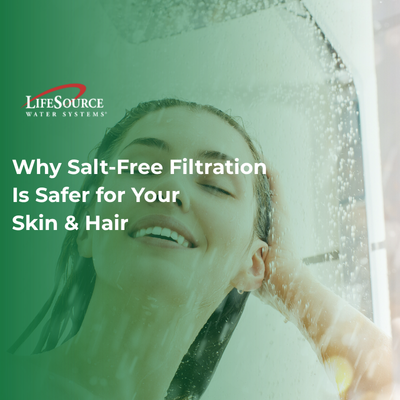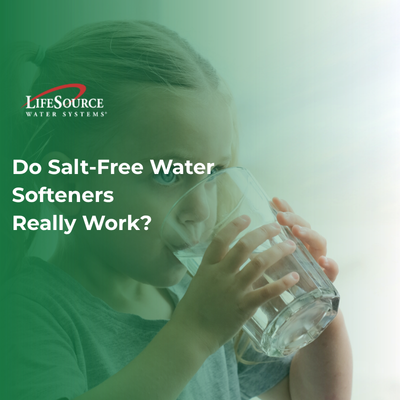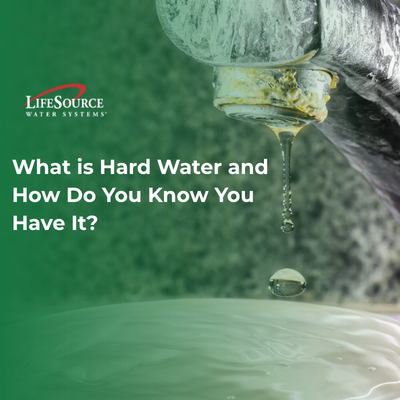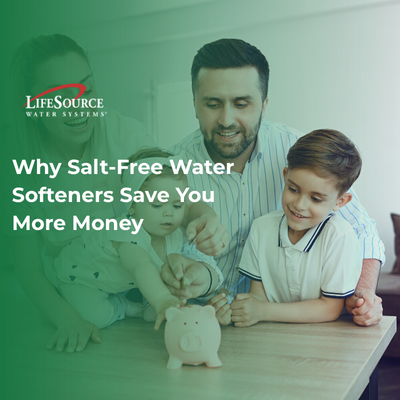
The 411 on Hard Water
Healthy Minerals vs. Scale Buildup
To put it simply, hard water is when there is an excess of minerals like calcium and magnesium in your water. Dissolved minerals are a natural component of water. As water flows down from the mountain tops, through our rivers and aqueducts, minerals naturally accumulate. When it comes to measuring the hardness of water, it’s measured by parts per million (ppm). When water is described as “hard,” it means the amount of dissolved minerals is around 60-120 ppm. This is when we start seeing mineral buildup on fixtures and appliances and spots on glassware.
While minerals can affect the taste of water, the actual trace amounts of minerals in our water are not harmful to our bodies. Water naturally contains minerals. In fact, retaining natural minerals in our water can help us get enough calcium and magnesium to meet our dietary needs. Humans have always received nutritional benefits from the water we drink. Both calcium and magnesium are great for building bone strength. Magnesium also reduces inflammation and regulates the release of cortisol, our stress hormone.
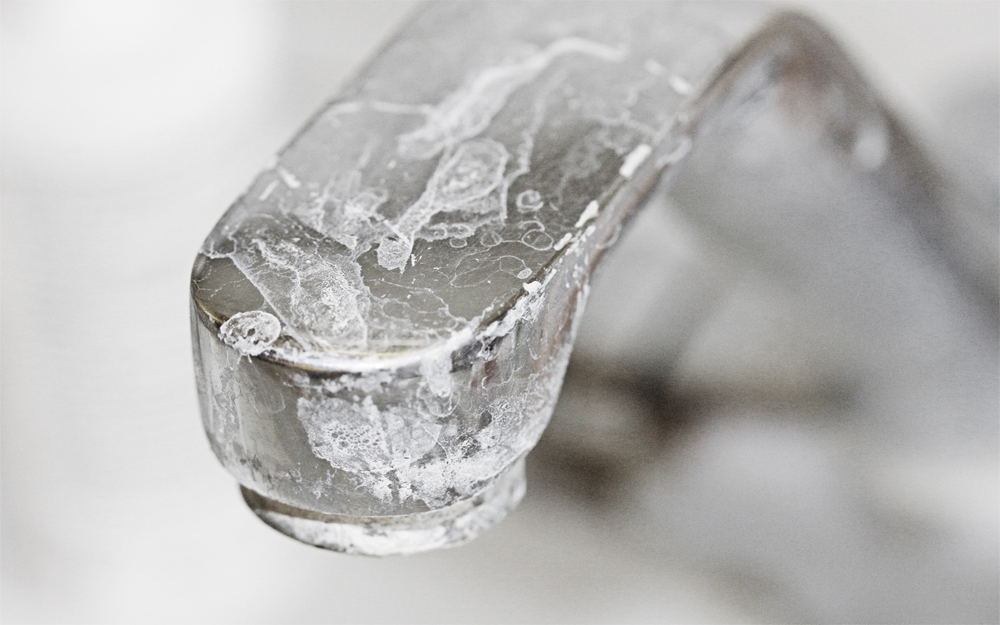
Maybe you’ve noticed white deposits on your bathroom fixtures or white spots on your shower doors and glassware, making them look dirty. Those deposits (also called “scale”) are not only aesthetically annoying, they can also build up in pipes and shorten the lifespan of your water appliances. The excess calcium and magnesium in hard water also react with soaps and detergents, creating what many people lovingly call “soap scum.” While hard water isn’t bad for us, it can be a real headache for your home.
How do we minimize the effects of hard water while retaining natural minerals? Get the best of both worlds! Get a whole house water system that lets you keep the natural minerals in your water while preventing them from sticking to your appliances and bathroom walls. Avoid salt-based water softeners. They strip water of all healthy minerals by exchanging mineral ions with sodium ions (salt). Adding salt to your water not only makes it undrinkable, it also puts a strain on our environment and city water systems. Water treatment plants aren’t able to remove the salt from our water, which means it’s not recyclable or suitable for farming and agriculture. Some areas are even going so far as to ban water softeners.

Consider all the ways we use water in our homes. We obviously want the best water possible for drinking, cooking, bathing and cleaning. Taking care of your hard water problem is a good start, but what about the other stuff that’s in tap water, like chlorine and chloramines, dirt or other contaminants? If you’re going to install a water system, get a salt-free whole house water system that also filters your water. Keep your home free from the effects of hard water and give your family clean, delicious worry-free water from every tap!

